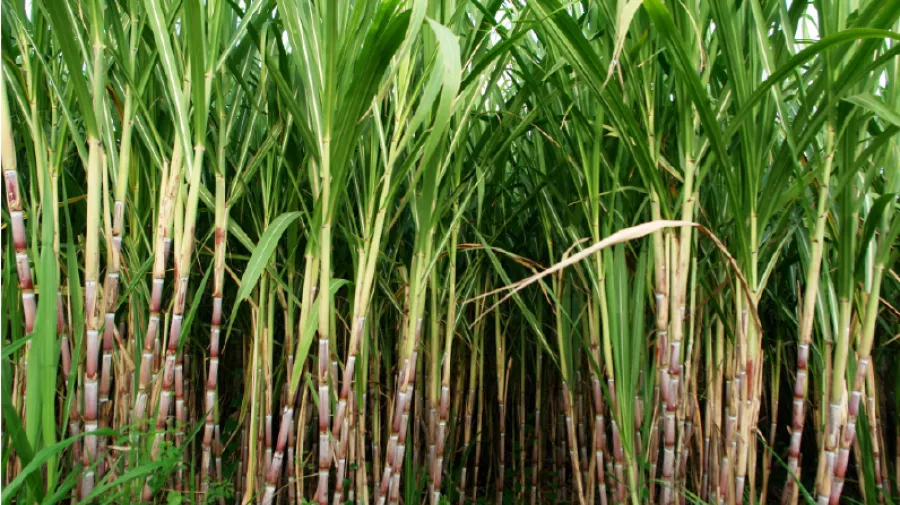Sugar and Cane: A Sweet Pairing in Health-Conscious Recipes
Sugar and Cane: A Sweet Pairing in Health-Conscious Recipes
Blog Article
Why Walking Cane Sugar Processing Chemicals Are Vital for Modern Sugar Refining
The role of cane sugar processing chemicals in modern-day sugar refining can not be overemphasized, as they are integral to enhancing both the efficiency of extraction and the general quality of the final product. Agents such as phosphoric acid and certain flocculants are used to remove pollutants, resulting in sugar that not only meets customer assumptions however additionally sticks to sector standards.
Duty of Handling Chemicals
The efficiency of walking cane sugar handling hinges significantly on the tactical application of handling chemicals. These chemicals play an essential role in improving the performance and quality of sugar extraction and refining. From the first phases of juice removal to the final filtration actions, handling chemicals help with different vital procedures.
In the extraction phase, chemicals such as phosphoric acid and calcium hydroxide are employed to maximize the clarification process, aiding to eliminate impurities and suspended solids from the cane juice. This not just improves the yield yet also makes sure the quality of the last product. Additionally, representatives like flocculants aid in the rapid settling of contaminations, thus improving the general procedure.
As the processing developments, chemicals are used in decolorization and crystallization phases. Triggered carbon and ion exchange resins offer to get rid of shade and smell, guaranteeing that the polished sugar satisfies consumer high quality standards. Inevitably, the function of handling chemicals expands past operational efficiency; they considerably impact the sensory characteristics of the end product, adding to market competition. Therefore, the thorough option and application of these chemicals are vital for achieving ideal end results in walking stick sugar processing.
Key Kinds Of Chemicals
Cane sugar processing depends on a range of key chemicals that promote each phase of manufacturing. These chemicals play essential roles in clarifying, lightening, and cleansing the sugar removed from walking cane.
One key group of chemicals consists of flocculants, such as polyacrylamide, which help in the information procedure by promoting the aggregation and settling of impurities. Furthermore, calcium hydroxide is typically used to reduce the effects of level of acidity and help in the removal of non-sugar parts.
Whitening representatives, such as activated carbon and sulfur dioxide, are used to decolorize the syrup, leading to a more clear end product. These chemicals help get rid of shade compounds that might affect the sugar's appearance and bankability.
Additionally, phosphoric acid functions as a pH regulatory authority during the processing phases, guaranteeing optimal conditions for the chemical activities entailed in sugar removal and filtration.
Various other vital representatives consist of edta (ethylenediaminetetraacetic acid), which chelates steel ions that might militarize unfavorable reactions, and sodium hydroxide, which assists in pH control throughout the refining process. Collectively, these chemicals boost effectiveness and guarantee a top notch walking stick sugar item.
Benefits for Sugar High Quality
Frequently forgotten, the usage of particular processing chemicals substantially boosts the overall quality of walking cane sugar. These chemicals play a crucial function in refining procedures, making certain that the final product satisfies rigorous sector standards for purity and taste.

In addition, processing chemicals assist in accomplishing a constant granulation and texture, which are critical for customer approval. By regulating the formation procedure, these chemicals guarantee that the sugar crystals develop evenly, resulting in a more appealing item that liquifies well in various applications.
Moreover, the use of these chemicals can improve the rack life of cane sugar by lessening moisture absorption and microbial growth. Overall, the strategic application of processing chemicals is necessary for supplying top notch walking stick sugar that meets customer expectations and market needs.
Ecological Impact Factors To Consider

Moreover, the energy-intensive nature of sugar refining, intensified by chemical use, commonly leads to enhanced carbon emissions. This contributes to environment adjustment and increases issues relating to the sustainability of present refining methods. In addition, the sourcing of these chemicals may involve techniques that endanger biodiversity, such as monoculture farming, which decreases the resilience of farming communities.

To alleviate look here these impacts, sugar refiners are increasingly exploring sustainable alternatives and embracing finest methods that minimize chemical use. Implementing extensive ecological management systems can aid make sure that the refining procedure aligns with ecological standards and promotes biodiversity. Eventually, a balanced approach that prioritizes both sugar quality and environmental stewardship is essential for the long-lasting viability of the sugar sector.
Future Trends in Refining
As the sugar industry comes to grips with the ecological challenges connected with typical refining techniques, innovative techniques are emerging to improve both performance and sustainability. One significant fad is the fostering of environment-friendly chemistry principles, which prioritize making use of non-toxic, biodegradable handling chemicals. This change not only decreases ecological impact however additionally addresses consumer demand for cleaner manufacturing approaches.
An additional encouraging development is the implementation of sophisticated purification technologies, such as membrane layer splitting up and adsorption processes. These methods enhance the clarity and high quality of the sugar while reducing the quantity of wastewater produced during refining. In addition, the assimilation of digital innovations, including IoT and AI, is changing functional efficiency by enabling real-time surveillance and anticipating maintenance, thus lessening source waste.
Additionally, making use of spin-offs from sugar refining, such as bagasse and molasses, is gaining grip. These products can be converted right into biofuels or value-added items, adding to a round economy within the sector. Jointly, these patterns signify a shift towards even more sustainable methods that not just enhance functional efficiency however also line up with international sustainability goals, guaranteeing the future stability Discover More of sugar refining.
Conclusion
Walking stick sugar handling chemicals are necessary in modern-day sugar refining, substantially boosting the efficiency and high quality of sugar removal. The critical use of these chemicals not just boosts the purity and flavor of the final item yet also makes sure constant crystallization and texture. As the industry increasingly prioritizes sustainability, the fostering of environmentally-friendly processing representatives is likely to form future fads in refining, inevitably bring about greater quality items and expanded service life for customers.

Ultimately, a balanced method that prioritizes both sugar top quality and environmental stewardship is vital for the long-term practicality of the sugar sector.
Walking cane sugar processing chemicals are essential in modern sugar refining, dramatically improving the efficiency and top quality of sugar removal.
Report this page